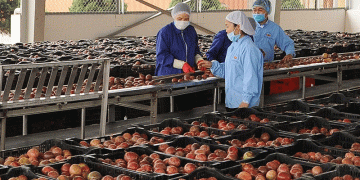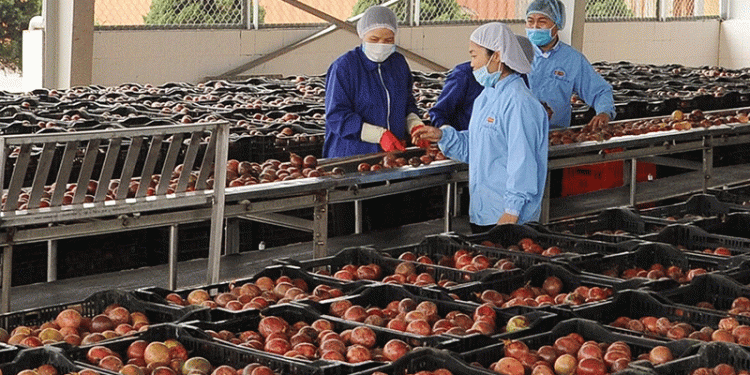In 2024, Vietnam’s fruit and vegetable exports reached an all-time high of 7.12billion, contributingsignificantlytothecountry’sagriculturalrevenue.Durianaloneaccountedfor 7.12billion, contributingsignificantlytothecountry’sagriculturalrevenue. Durianaloneaccountedfor 3.2 billion, with $2.94 billion coming from exports to China (Vietnam News, 2024). However, the industry now faces mounting pressure as major importers enforce stricter regulations.
The first two months of 2025 saw a 11% drop in export value ($724.5 million) compared to the same period in 2024 (General Department of Vietnam Customs). China—Vietnam’s largest market, absorbing 46.5% of fruit and vegetable exports—has intensified inspections for banned chemicals like auramine O, leading to rejected durian shipments.
Key Markets Tighten Controls
1. China: Sudden Inspections Disrupt Trade
China’s new food safety and phytosanitary rules have caught Vietnamese exporters off guard. Despite a 2024 protocol on frozen durian exports, compliance remains difficult. The unexpected focus on auramine O (a banned dye) has forced many containers to return, destabilizing the sector.
2. The U.S.: Banning Harmful Pesticides
The U.S. has banned chlorpyrifos, a pesticide linked to health risks, and is reviewing maximum residue limits (MRLs) for other chemicals (EPA, 2025). This affects Vietnam’s exports, which grew 39.8% in 2024.
3. The EU: Higher Testing Rates & Sustainability Demands
Since December 2024, the EU has:
- Increased durian inspection rates from 10% to 20% due to pesticide violations.
- Enforced 50% checks on okra and chili, requiring food safety certificates.
- Lowered cadmium limits in fruits like mangoes and pineapples (EU Regulation 2023/915).
The EU issued 114 warnings on Vietnamese agri-food products in 2024, with 16 more in early 2025 (EU RASFF). Future challenges include carbon footprint reporting, plastic credits, and biodiversity standards.
Solutions: Standardizing Farming & Strengthening Compliance
1. Expanding Certified Growing Areas
Vietnam is accelerating VietGAP, GlobalGAP, and HACCP certifications to meet international standards. However, fraud in farm codes remains a critical issue—some traders misuse codes to export uncertified produce, damaging Vietnam’s reputation.
2. Digital Tracking & Stricter Penalties
Experts recommend:
- Digitizing farm codes for traceability.
- Heavier fines for fraudulent practices.
- Farmer training on sustainable practices.
3. Meeting EU Sustainability Standards
European buyers now assess labor conditions, environmental impact, and social responsibility. Companies like DOVECO have succeeded by adhering to these demands, seeing steady export growth to the EU.
Vietnam’s fruit and vegetable industry must adapt quickly to evolving global regulations. While the $10 billion export target by 2030 is achievable, it depends on improving farm standards, reducing pesticide use, and ensuring transparency. Without urgent reforms, export declines may continue.































